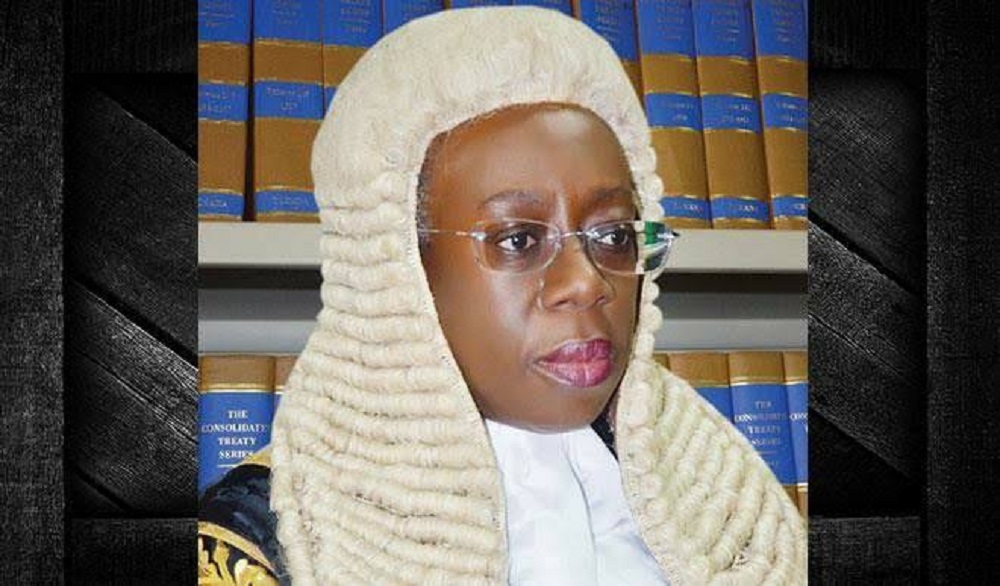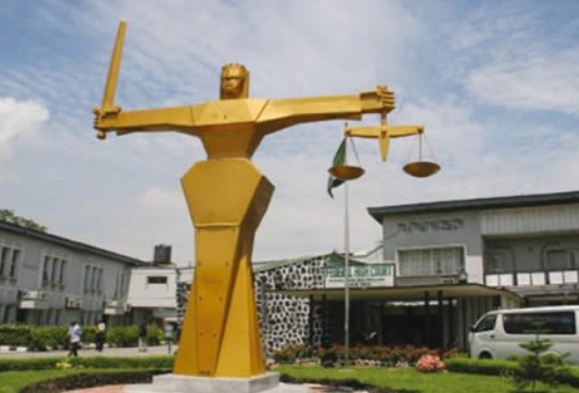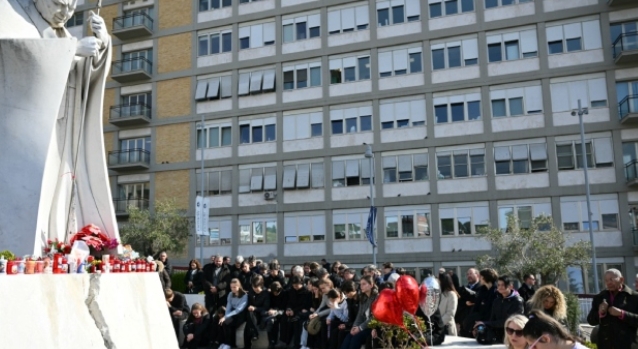News
Kekere-Ekun Set To Emerge Nigeria’s Second Female CJN

Barring any last-minute change, Justice Kudirat Kekere-Ekun of the Supreme Court is set to emerge as the next chief justice of Nigeria (CJN).
If she assumes the office, Kekere-Ekun would become the second female justice in Nigeria to hold the exalted position after Mariam Aloma Mukhtar, who was CJN between July 2012 and November 2014, spending 28 months in office.
The current occupant of the office, Justice Olukayode Ariwoola, who assumed office on June 27, 2022, will formally bow out on Thursday, August 22, 2024, after attaining the mandatory retirement age of 70 years.
As the most senior justice of the Supreme Court after Ariwoola, Justice Kekere-Ekun is favoured to clinch the position.
The incoming CJN, who is 66 years old, may stay up to four years compared to the average of two years most of her predecessors held the position.
After 11 years at the Supreme Court, Justice Kekere-Ekun will not only become the next CJN but also head the National Judicial Council (NJC), which oversees the appointment, promotion, and discipline of judges across the country.
Justice Kekere-Ekun was born on May 7, 1958 and obtained her LL. B in 1980 from the University of Lagos and LL.M from the London School of Economics and Political Science in November 1983. She was called to the Nigerian Bar on 10th July, 1981.
From 1985 to 1989, she was in private practice and was later appointed a Senior Magistrate Grade II, Lagos State Judiciary in December 1989. She was appointed a judge of the High Court of Lagos State on July 19, 1996. She served as the chairman of the Robbery and Firearms Tribunal, Zone II, Ikeja, Lagos, from November 1996 to May 1999.
Kekere-Ekun was elevated to the Court of Appeal on 22nd September, 2004, where she served in various Divisions and as the presiding justice of two Divisions of the appellate court (Makurdi and Aku) in 2011 and 2012, respectively.
She was elevated to the Supreme Court of Nigeria as the fifth female justice of the apex court and sworn in on Monday, July 8, 2013.
She has attended numerous courses and seminars within and outside Nigeria and received several merit awards.
Justice Kekere-Ekun is also a life Bencher, a member of the International Association of Women Judges and its president.
LEADERSHIP Sunday reports that the judiciary has been in the eye of the storm, notably since the country returned to democratic rule in 1999.
With Justice Kekere-Ekun assuming office in the next few weeks, the succession battle in the Supreme Court may be rancour-free for the first time in five years.
Justice Walter Onnoghen, who served as CJN between 7th March, 2017 and 25th January 2019, left controversially after he was accused of failing to declare his assets.
His successor, Justice Tanko Muhammad, who assumed office on 25th January, 2019, followed almost the same pattern after his fellow justices accused him of unfair treatment, particularly in the area of their welfare. He voluntarily resigned on the grounds of ill-health on 27th June, 2022.
The CJN is the head of the government’s judicial arm. He presides over the country’s Supreme Court and the National Judicial Council.
The outgoing CJN (Ariwoola) was appointed acting CJN on 27th June, 2022 upon Justice Tanko Muhammad’s resignation and was confirmed by the Nigerian Senate on 21st September, 2022.
The Supreme Court of Nigeria is the highest, and its decisions are final. The president nominates the CJN upon the recommendation by the NJC, and is subject to confirmation by the Senate.
The CJN holds office at the pleasure of the Nigerian constitution and can only be removed from office due to death or on attainment of age 70, whichever comes first, or by impeachment by the Senate of the Federal Republic of Nigeria, which requires a super majority of the Senate members.
Short Stay In Office Based On Rules – Senior lawyers
In the last 15 years, seven CJNs have presided over the affairs of the nation’s judiciary, which is about an average of two years each for the occupants of that office.
Lawyers have, however, lamented the short stay in office of the CJNs.
According to them, an average of two years in office is not enough to bring about the needed reforms in the country’s judiciary.
However, some senior lawyers who spoke to LEADERSHIP Sunday were quick to assert that the CJN’s office is not a political appointment.
According to them, it is regulated by law.
A former attorney-general and commissioner for justice in Imo state, Chief Chukwuma-Machukwu Ume (SAN), said the apex court is not a political party whose programmes and policies are personal.
According to him, the CJN is an administrator and is not expected to bring his agenda to run the court.
“The court is regulated by law, and the law is the law; there is nothing you can do about it. The Supreme Court is not a political party where one man is expected to bring his agenda to the table after winning election,” he said.
Another lawyer, Barrister Abdul Balogun, said rules for succession to the CJN’s office have already been laid down.
“Laws and rules guide the judiciary, and any attempt to deviate from them is a call to lawlessness, which will negatively impact the country’s judiciary.
“In the judiciary as a whole, it is a laid down rule that the most senior assumes office upon a vacancy in the leadership of any court from the customary court to the Supreme Court. So, any attempt to deviate from that is a call for chaos in the system,” he said
In the last 15 years, the country has produced seven CJNs. While some of them left an indelible mark in office and in the minds of Nigerians with their policies and reforms to the country’s judiciary, others had their tenures characterised by controversies.
Aloysius Iyorgyer Katsina-Alu (2009- 2011)
From his very first day in office, there was controversy after he was sworn in by his predecessor. He was the first CJN to be sworn in by his predecessor, Justice Idris Legbo Kutigi (rtd), due to the unavailability of the then ailing President Umaru Yar’Adua, who did not hand over powers to then Vice President Goodluck Jonathan.
Yar’Adua never returned to the country until his death. Justice Katsina-Alu’s tenure as the CJN was also marked by his controversial battle with the then President of the Court of Appeal, Justice Isa Ayo Salami (rtd), who the NJC later suspended.
Dahiru Musdapher (2011-2012)
His tenure as CJN was crisis-free; rather, he brought some reforms that impacted positively on the judiciary. Some of his reforms are still being implemented today. The Jigawa State-born Musdapher was appointed Chief Justice Nigeria on August 27, 2011, and sworn in by former President Goodluck Jonathan on August 29, 2011.
He served as Chief Judge of Kano State between 1979 and 1985.
Musdapher, a native of Babura town, served as a member of the Court of Appeal between 1985 and 2003 and later joined the Supreme Court.
During his tenure, he admitted that the judiciary needed radical surgical reforms and called on all Nigerian judges to rise above the daunting challenges by restoring hope and confidence in the judicial system.
MARIAM ALOMA MUKHTAR (2012 – 2014)
Justice Mukhtar could be described as a judge who came, who saw and, to an extent, reinvigorated the fervor to stamp out the burden of corruption that has, in no small measure, weighed down the scale of justice in Nigeria.
She spent barely 28 months in office. She took over from Justice Dahiru Musdapher on July 15, 2012.
Undisputedly, no administration in the judiciary ever attempted to fight corruption like Mukhtar, during whose short regime about seven judges were sacked.
Remarkably, no woman had attained that position since 1963, when the Federal Republic of Nigeria was proclaimed, and Dr Nnamdi Azikiwe became its first President.
The situation deteriorated to the extent that an ex-CJN and a sitting president of the Court of Appeal publicly poked themselves over an alleged plan to subvert justice in a gubernatorial dispute involving Sokoto State.
Consequently, on July 11, 2012, while answering questions from the Nigerian Senate, Justice Mukhtar admitted the presence of bad eggs at the top echelon of the judicial arm of government, even as she vowed to fight and expose such persons before her exit from office.
A few days after she assumed duties, Justice Mukhtar reviewed 337 petitions filed against judicial officers before the NJC.
Hence, it was not surprising that seven justices were sacked within two years of her tenure.
MAHMUD MOHAMMED (2014 – 2016)
Justice Mohammed was also less controversial in his about two years in office as CJN.
He was born on November 10, 1946, in Jalingo, Taraba State.
He studied for his Bachelor’s degree in Law (LL.B) at Ahmadu Bello University, Zaria, graduating in 1970. After that, he attended the Nigerian Law School in Lagos and was subsequently called to the Bar in 1971.
He began his career in the public service with the Ministry of Justice of the defunct North-eastern and Gongola States and served on the Gongola Bench.
WALTER ONNOGHEN (2017 – 2019)
Justice Onnoghen began his tenure as CJN on a controversial note and ended it on the same note. When he was appointed in acting capacity, it appeared that former President Muhammadu Buhari never wanted him to become the substantive CJN as it took him several months to confirm his appointment.
In fact, it was Professor Yemi Osinbajo (SAN), the former vice president who acted as president when Buhari was away on a medical trip, that confirmed Onnoghen’s appointment.
Midway into his tenure as CJN, he was accused of corruption and removed from office after he was asked to resign.
His resignation from office followed the recommendation of the NJC for his early retirement. The recommendation was sent to Buhari, who readily accepted it.
Justice Onnoghen faced trial at the Code of Conduct Tribunal over allegations of false declaration of assets.
The Economic and Financial Crimes Commission (EFCC) also accused the former CJN of receiving illicit payments and bribes from lawyers. He denied all the allegations.
Not a few Nigerians read political undertone in his tribulation, especially as the 2019 general elections were fast approaching.
IBRAHIM TANKO MUHAMMAD (2019 – 2022)
Like his predecessor, Justice Tanko Muhammad assumed office on a controversial note and also exited under questionable circumstances.
After Justice Onnoghen was eased out, many believed it was to prepare Justice Muhammad to become the CJN. Some believed the former president tainted Onnoghen with a corruption tag to make way for Muhammad, also a northerner.
Like Onnoghen, he could not finish his tenure, but due to ill health.
There was confusion in the media over his resignation. However, after many weeks of denial and confusion, it was later confirmed that he resigned as CJN on health grounds.
Shortly before his resignation, he officially reacted to the allegations of uncaring attitude levelled against him by his fellow justices in the apex court.
In his first official reaction, he admitted that the Supreme Court, like any other establishment in the country, had been hit by a devastating economic crunch and the court’s leadership under him could no longer meet some of its obligations to the justices, especially in welfare.
OLUKAYODE ARIWOOLA (2022 -2024)
Justice Ariwoola took the oath of office as the acting CJN at the Presidential Villa in Abuja on June 27, 2022.
He is, arguably, one of the finest CJNs the country has produced with his policies and programmes for the judiciary. However, like some of his predecessors, his tenure is fraught with controversies, especially as the judiciary under him came to be seen as being in the pockets of the political class.
In fact, retiring Supreme Court justices in his tenure used their valedictory speeches to lampoon the judiciary under his watch and so many Nigerians have lamented that the present judiciary dispenses judgement rather than justice.
Whoever takes the mantle after Ariwoola will have a herculean task repairing the battered image of the judiciary in order to restore the confidence of the people in that arm of government.
Credit: LEADERSHIP
News
Court orders reinstatement of fired Lagos Assembly Clerk, Onafeko

By Kayode Sanni-Arewa
The National Industrial Court sitting in Lagos has ordered the reinstatement of the fired Clerk of the Lagos State House of Assembly, Olalekan Onafeko.
The order follows an ex parte application to the Court made by Onafeko through his counsel, Yusuf Nurudeen, in a case he filed against Lagos State Government, Lagos State Civil Service Commission, Lagos State House of Assembly Service Commission, The Speaker, Lagos State House of Assembly, Attorney-General of Lagos State and Mr. Ottun Babatunde.
Onafeko was the Clerk of the House before January 13 when Hon. Mudashiru Ajayi Obasa was removed as Speaker, with the then Deputy Speaker, Mojisola Lasbat Meranda elected as the new Speaker.
Obasa’s removal, a decision that sparked controversy within the Lagos House and the ruling All Progressives Congress (APC), also led to Onafeko losing his position, with Babatunde Ottun appointed as his acting replacement.
The claimant in the suit marked: NICN/LA/23/2025 sought for an interim injunction restraining the six defendants from parading any individual including Babatunde as the clerk pending the hearing of the motion on notice for Interlocutory injunction already filed in the suit.
Granting the application, Justice M. N. Esowe in an ex parte order directed that Babatunde should cease to parade himself as Clerk
Esowe ordered that that what was in place in terms of the person in the saddle of the Clerk Office prior to the crisis rocking the House of Assembly should now prevail.
“That both parties shall maintain the peace and status quo ante bellum until the motion on notice is heard and determined,” Esowe ordered.
The judge slated the hearing of the motion on notice for March 3, 2024.
News
Worldwide Prayers For ‘Critically’ Sick Pope Francis

By Kayode Sanni-Arewa
Pope Francis spent his tenth day in hospital Sunday as Catholics around the world prayed for his recovery, the day after the Vatican warned the 88-year-old’s condition was “critical”.
The Argentine pontiff, who is being treated for double pneumonia, suffered a prolonged asthma-style attack on Saturday and required blood transfusions for a low platelet count.
On Sunday morning the Holy See said “the night passed peacefully, the pope rested” — indicating no repeat of the crisis the previous day, Vatican sources said.
But Francis, who had part of a lung removed when he was a young man, is still receiving oxygen through a tube in his nostrils in the papal suite at Rome’s Gemelli hospital.
In a message published Sunday but written in the past few days, the Jesuit thanked hospital staff and said he had confidence in his treatment.
“I am confidently continuing my hospitalisation at the Gemelli Hospital, carrying on with the necessary treatment — and rest is also part of the therapy!” he said.
“I ask you to pray for me,” he concluded in the text published in lieu of his weekly Sunday Angelus, which he normally delivers from a window overlooking St Peter’s Square.
People pray at the feet of a statue of John Paul II outside the Gemelli hospital where Pope Francis is hospitalized for pneumonia in Rome on February 23, 2025. (Photo by Alberto PIZZOLI / AFP)
Francis, who has been head of the Catholic Church since 2013, was admitted on February 14 initially with bronchitis, but his condition has deteriorated since then.
In its evening update Saturday, the Vatican warned his “condition continues to be critical, therefore the pope is not out of danger”.
It said Francis was alert and “spent the day in an armchair even if he was suffering more than” the day before.
It said he had a “prolonged asthmatic respiratory crisis, which also required the application of high-flow oxygen”.
Daily blood tests also “showed thrombocytopenia, associated with anaemia, which required the administration of blood transfusions”, it added.
Thrombocytopenia is a condition that occurs when the platelet count in the blood is too low, which can cause trouble stopping bleeding.
Blood or platelet transfusions, delivered via an intravenous (IV) line, are given to people who are either bleeding heavily or at very high risk of bleeding, according to the US National Institutes of Health (NIH).
“The pope gets worse,” headlined Italy’s Corriere della Sera newspaper on Sunday, while La Repubblica described it as the “darkest day” at the Vatican.
Well-wishers have been leaving candles outside the Gemelli since Francis was admitted, and a special mass was planned for Sunday evening in Rome.
“I am praying for him, for his health, because he is a special person for all of us,” Italian teacher Ilde Zito told AFP at the hospital.
Prayers and messages of solidarity also came in from among the almost 1.4 billion Catholics across the globe, alongside other Christians and world leaders.
In the cathedral of Buenos Aires, where Francis was once archbishop, TV screens at the entrance showed images of then Jorge Bergoglio’s good works, and the priest held a special mass.
“He is strong, he has always been strong, but there is nature. I know he is very ill and old. I hope he recovers, but it makes me sad,” Hector Armando Diaz, 76, a retired sales clerk, told AFP there.
Across the world in Iraq’s northern city of Mosul, a former bastion of the Islamic State group that Francis visited in 2021, at least a dozen churches also held prayers for him.
“This is the least we can do to express our solidarity, love, and appreciation for this great person,” said university professor Adnan Hadi.
Mexico’s president, Claudia Sheinbaum, offered her hopes on social media for a speedy recovery for the “great humanist” Francis, the first pope from the Americas.
Francis’s continued hospitalisation has sparked huge concern about his health but also speculation about whether he might step down.
He has always left the door open to following his predecessor, Benedict XVI, who in 2013 became the first pope since the Middle Ages to resign.
But he has repeatedly said it was not the time.

The pope maintains a punishing work schedule. He carried out a mammoth 12-day tour to the Asia-Pacific in September, but has suffered increasing health issues.
He underwent colon surgery in 2021 and an operation for a hernia two years later. He is overweight and has constant hip and knee pain, which forces him to use a wheelchair.
AFP
News
Liverpool thrash Man City, Go 11 Points Clear

By Kayode Sanni-Arewa
Liverpool took a big step to winning the Premier League, crushing an uninspiring Manchester City in a showdown on Sunday.
Mohamed Salah stole the show, scoring one and providing an assist to send Liverpool 11 points clear at the top of the table although they have played a game more.
The Egyptian opened the scoring with his 30th goal of the season before setting up Dominik Szoboszlai to double the lead before half-time.
Just days after exiting the Champions League to Real Madrid, this was another sobering defeat for the dethroned English champions, who are now 20 points adrift of the leaders.
So often during Pep Guardiola’s glorious reign, Liverpool have come up just short in English football’s great rivalry of recent years.
However, their time to match Manchester United’s record of 20 English top-flight titles now appears just months away in Arne Slot’s first season in charge.
Arsenal’s shock 1-0 home defeat to West Ham on Saturday had eased the pressure on Liverpool, that had built after dropping points in two of their last three games at Everton and Aston Villa.
A trip to the Etihad has for so long been the stiffest test of all, but City’s defensive frailties were easily exposed and they also badly missed the presence of the injured Erling Haaland in attack.
Liverpool, by contrast, had their talisman fit and firing as Salah took his staggering tally this season to 25 goals and 16 assists in 27 Premier League appearances.
However, their time to match Manchester United’s record of 20 English top-flight titles now appears just months away in Arne Slot’s first season in charge.
Arsenal’s shock 1-0 home defeat to West Ham on Saturday had eased the pressure on Liverpool, that had built after dropping points in two of their last three games at Everton and Aston Villa.
A trip to the Etihad has for so long been the stiffest test of all, but City’s defensive frailties were easily exposed and they also badly missed the presence of the injured Erling Haaland in attack.
Liverpool, by contrast, had their talisman fit and firing as Salah took his staggering tally this season to 25 goals and 16 assists in 27 Premier League appearances.
The Egyptian fired the visitors in front on 14 minutes thanks to a brilliantly executed set-piece routine.
Alexis Mac Allister’s corner was flicked by Szoboszlai into Salah’s path and his shot deflected off Nathan Ake past the despairing dive of Ederson.
At the other end, City’s own Egyptian international showed his ability to finish, but Omar Marmoush had strayed offside before being played in by Phil Foden.
City winger Jeremy Doku was skipping past Trent Alexander-Arnold at will, yet the Belgian consistently failed to deliver a telling cross or shot.
Salah was not so forgiving as he raced onto a long ball over the top and teed up Szoboszlai to wrong-foot Ederson.
The final outcome could have been much more humiliating for City had Liverpool had been as accurate on the counter-attack after the break.
Curtis Jones had a third goal ruled out by a VAR review for offside after Szoboszlai just failed to time his run through the heart of the City defence.
Ederson was forced into a stunning save from Luis Diaz and only a brilliant last-ditch tackle from Abdukodir Khusanov denied Szoboszlai a second.
Marmoush scored a hat-trick in last weekend’s 4-0 win over Newcastle and remained a lively threat as he flashed another effort across the front of Alisson Becker’s goal.
But City lacked the end product to make nearly 70 percent possession count.
Despite an eighth league defeat of the season, Guardiola’s men remain in fourth and will be confident of securing their place in the Champions League next season with a top-five finish likely to be enough.
However, after an unprecedented run of four consecutive titles, City look like yesterday’s team with Liverpool now champions in waiting.
-

 Metro20 hours ago
Metro20 hours agoInsecurity! Gunmen invade church, slash pastor’s 2 fingers
-

 Metro20 hours ago
Metro20 hours agoFire engulfs MTN office in Oyo
-

 Foreign20 hours ago
Foreign20 hours agoPentagon set to sack 5400 staff as attack hits Trump’s downsizing plan
-

 Metro20 hours ago
Metro20 hours agoDanger averted as police rescued six kids from collapsed building
-

 News19 hours ago
News19 hours agoNSCDC, Tantita intensify joint efforts to combat oil theft in Niger Delta
-

 News12 hours ago
News12 hours agoREVEALED! Gov Fubara Accused of Paying N4.8Bn Monthly to Ikenga Ugochinyere
-

 Sports20 hours ago
Sports20 hours agoEnd of road for Arsenal, may not win any shield this season – Report
-

 Sports20 hours ago
Sports20 hours agoAtalanta coach makes a U-turn says he never knew his comment could offend Lookman







